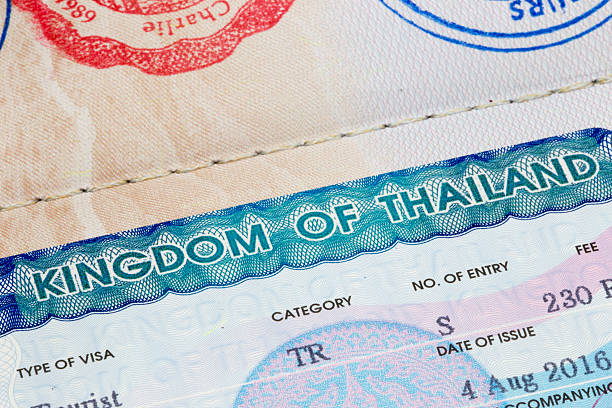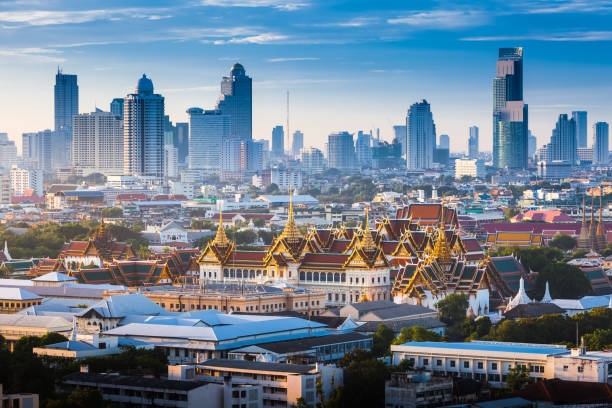Thailand Visa for US Citizens – Complete Guide by My Thailand Lawyer



Traveling to Thailand has always been a popular choice for US citizens. Whether it is for tourism, retirement, business, or long-term living, understanding the visa process is essential. Navigating Thailand’s immigration system can be complex, especially when dealing with varying visa categories, entry requirements, and updates in immigration laws. At My Thailand Lawyer, based in Bangkok, we provide comprehensive guidance to US citizens seeking the right visa for Thailand.
This complete guide explains the Thailand visa options for US citizens, entry requirements, documentation, and how our legal services can help ensure a smooth application process.
Do US Citizens Need a Visa for Thailand?
One of the first questions many travelers ask is whether US citizens need a visa to visit Thailand. The answer depends on the purpose and duration of the stay.
Visa Exemption Rule: US citizens can enter Thailand without a visa for up to 30 days when arriving by air, or 15 days when arriving by land, under the visa exemption program.
Longer Stays: For those wishing to stay beyond the exemption period, a visa must be obtained prior to travel.
Different Purposes: Business trips, retirement stays, work, education, and marriage all require specific visas.
While short-term visits may not require a visa, longer stays and more complex purposes demand the right visa application and legal support.
Types of Thailand Visas for US Citizens
Thailand offers multiple visa options tailored to the purpose of travel. Understanding which visa suits your situation is crucial.
1. Tourist Visa
The Tourist Visa (TR) allows US citizens to stay in Thailand for 60 days, with an option to extend for another 30 days. This is ideal for leisure travel, visiting family, or short cultural stays.
2. Non-Immigrant Visa Categories
US citizens planning to stay longer or with specific purposes can apply for non-immigrant visas.
Non-Immigrant B (Business Visa) – For conducting business or employment in Thailand.
Non-Immigrant ED (Education Visa) – For studying at Thai institutions or attending training courses.
Non-Immigrant O (Other Purposes) – For retirees, spouses of Thai nationals, or visiting family.
Non-Immigrant O-A (Retirement Visa) – For US citizens over 50 years old wishing to retire in Thailand.
Non-Immigrant O-X (Long Stay Retirement Visa) – For retirees seeking extended stay options of up to 10 years.
3. Work Visa and Work Permit
To legally work in Thailand, US citizens must secure a Non-Immigrant B Visa and apply for a work permit. This process requires sponsorship from a Thai company or organization.
4. Marriage Visa
US citizens married to Thai nationals can apply for a Marriage Visa (Non-Immigrant O), which allows long-term residency rights.
5. Elite Visa
The Thailand Elite Visa is a special long-term visa designed for individuals seeking convenience and extended residency privileges, ranging from 5 to 20 years.
Entry Requirements for US Citizens
When entering Thailand, US citizens must comply with immigration rules. The basic requirements include:
A passport valid for at least 6 months
Confirmed return ticket or onward travel ticket
Proof of sufficient funds during stay
Visa approval if staying beyond the exemption period
Additional requirements may apply for long-term visas such as medical insurance, financial statements, or proof of relationship.
Visa Application Process for US Citizens
The visa process can be overwhelming without proper legal guidance. Here is an overview:
Step 1: Determine the Visa Type
Choose the correct visa based on the purpose of your stay. For example, retirement visas require proof of financial stability, while business visas require corporate sponsorship.
Step 2: Prepare Documentation
Collect necessary documents such as passport copies, photos, financial statements, or marriage certificates. Each visa type has its own specific requirements.
Step 3: Apply at Thai Embassy or Consulate
Applications are usually submitted at a Royal Thai Embassy or Consulate in the US before traveling.
Step 4: Visa Approval
Processing time varies depending on visa type. Some visas can be approved within days, while others may take weeks.
Step 5: Arrival in Thailand
Upon arrival, US citizens must go through immigration clearance and present their visa approval, along with supporting documents if requested.
Step 6: Extensions and Renewals
Tourist visas and non-immigrant visas can often be extended at Thai Immigration offices. For long-term visas, renewals are required annually, except for Elite Visa holders.
Common Challenges for US Citizens Applying for Thai Visas
Applying for a Thailand visa can present obstacles. Some common challenges include:
Incomplete Documentation – Missing or incorrect papers lead to application rejection.
Misunderstanding Visa Categories – Applying for the wrong type of visa results in delays.
Changing Immigration Rules – Thai immigration policies change frequently, causing confusion.
Language Barriers – Legal and immigration documents may be in Thai, complicating applications.
Overstays – Staying beyond the visa period without renewal can lead to fines, blacklisting, or deportation.
With proper legal support, these issues can be avoided.
How My Thailand Lawyer Can Help
At My Thailand Lawyer, based in Bangkok, we specialize in assisting US citizens with Thailand visa applications. Our team ensures that you meet all requirements, submit the right documents, and avoid costly mistakes.
Our services include:
Visa Consultation – Assessing your case to recommend the best visa option.
Document Preparation – Ensuring every document is accurate and complete.
Legal Representation – Communicating with Thai immigration on your behalf.
Extensions & Renewals – Helping you legally extend your stay.
Problem Resolution – Assisting with overstays, denied applications, or legal disputes.
Thailand Visa Rules for US Citizens: Key Points
To summarize the essentials:
US citizens can stay in Thailand without a visa for 30 days by air or 15 days by land under the exemption program.
For longer stays, Tourist, Non-Immigrant, Retirement, Marriage, Business, and Elite Visas are available.
Applications must be submitted to the Thai Embassy or Consulate before entry (except visa exemption).
Overstaying can result in serious legal consequences.
Professional legal support simplifies the process and reduces risks.
Long-Term Residency Options for US Citizens
For those looking to live in Thailand permanently, there are specific pathways:
Retirement Visa (O-A / O-X) – For US citizens aged 50 and above, with financial proof.
Marriage Visa – For those married to Thai nationals, renewable annually.
Work Visa with Permit – For professionals employed in Thailand.
Thailand Elite Visa – For individuals seeking convenience and multiple-year residency.
Permanent Residency – Available for long-term residents who meet specific conditions.
Why Choose Thailand for Long-Term Living?
Thailand remains a favorite destination for US citizens due to:
Affordable cost of living
High-quality healthcare
Warm climate and tropical beaches
Rich cultural experiences
Proximity to other Southeast Asian destinations
With the right visa, US citizens can enjoy long-term life in Thailand without immigration hassles.
Why Work With My Thailand Lawyer?
As immigration laws can be complex, having experienced legal professionals is crucial. My Thailand Lawyer in Bangkok provides:
Expert knowledge of Thai visa and immigration laws
Years of experience assisting foreign nationals
Personalized services tailored to each case
Assistance in resolving legal and immigration disputes
Our goal is to ensure your visa process is smooth, compliant, and stress-free.
